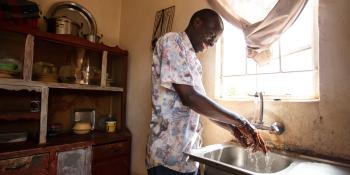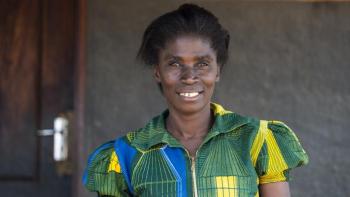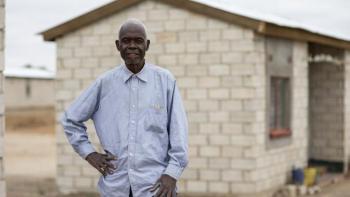Promoting health in Zambian communities
Christina once drew her water from a shallow well near her home. She once made frequent and urgent trips to the doctor with her grandchildren.
“The water was contaminated, and the kids were always getting sick,” Christina says. “Sometimes, they would even get admitted to the hospital with severe diarrhea, with dysentery, with cholera.”
The doctor’s visits stopped after Habitat Zambia partnered with the local utility to help Christina and her community tap into pipes carrying treated water. Today, families line up with their buckets to get their water at a kiosk built by Habitat volunteers. “The children just don’t get sick anymore,” Christina says.
Habitat’s definition of decent housing includes access to clean water, something more than 40% of Zambians don’t have. “Safe, clean water is essential to the health of communities,” says Ruth Mitimingi, Habitat Zambia acting national director. “Many people, including many children, die from not having safe water to drink. So when we talk about access to decent shelter, we have to talk about access to clean water.”
Kiosks are an option for communities that can link to existing water pipes. For those that can’t, community water pumps are an answer.
Mary used to walk more than an hour a day to get water for her family. On days when she couldn’t go, she sent her children, which meant they missed school. Now, through the efforts of Habitat Zambia, she and her children take their buckets to a community pump right near their house.
While clean water is essential to improving health and lives, so is proper sanitation and hygiene, something especially important in large, informal settlements without basic services. The homes built by Habitat Zambia have a latrine with a washroom and toilet. “This significantly improves the living and health conditions of families,” Mitimingi says.



